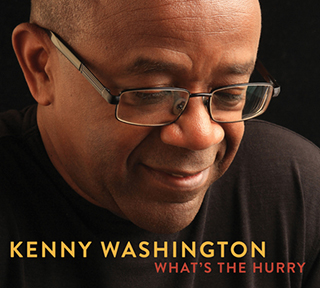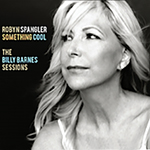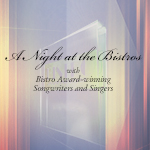Kenny Washington
What’s the Hurry
(Lower 9th Records)
July 14, 2020
Reviewed by Alix Cohen

Kenny Washington sings like he means it. Unlabored flannel vocals create real-time sentiment; he bends notes or adds syllables in service of the lyrics. That he doesn’t always land precisely adds rather than detracts from the effect.
https://redemperorcbd.com/wp-content/languages/new/ventolin.html
https://www.playavistaorthodontics.com/wp-content/languages/new/synthroid.html
His occasional tenor range is unexpected.
Most of these tracks are appealingly pared down.
https://redemperorcbd.com/wp-content/languages/new/finasteride.html
The musicianship is excellent and given room to flex.
“The Best Is Yet to Come” (Cy Coleman/Carolyn Leigh) swings
in on a lazy hammock. A guitar-centric “’S Wonderful” (George Gershwin/Ira
Gershwin) is fast and light on its feet à la Django Reinhardt. (Jeff Massanari
on guitar). Washington emits short phrases without sounding clipped.
https://www.playavistaorthodontics.com/wp-content/languages/new/flagyl.html
“Stars Fell
on Alabama” (Frank Perkins/Mitchell Parish) delivers tea-dance nostalgia via
the singer’s subdued crooning, Victor Goines’ sax sashay, and Gary Brown’s
soulful bass.
Harold Arlen/Ted Koehler’s “I’ve Got the World on a String” enters on Les Paul-like two-step rhythm.
https://redemperorcbd.com/wp-content/languages/new/clomiphene.html
https://www.playavistaorthodontics.com/wp-content/languages/new/clomiphene.html
Massanari provides exacting string work. The song’s vocal ripples up hill and down dale with an ingénue grin. “I Ain’t Got Nothin’ but the Blues” (Duke Ellington/Don George) manages to be both lament and burlesque. A backroom piano (Josh Nelson) and an ardent trumpet (Mike Olmos) add low-key authenticity. Washington’s melancholy rendition proves that wailing is unnecessary.
To my mind both “Invitation” (Bronislaw Kaper/Paul Francis Webster) and “No More Blues”/“Chega De Saudade” (Antonio Carlos Jobim/Vinicius de Morales) get buried in production. The first is like a noir film theme, the second a carnival samba with multiple layers and infectious rhythm but an undefined result. It’s a matter of taste.
“Bewitched, Bothered and Bewildered” (Richard Rodgers/Lorenz Hart) begins surprisingly a cappella. It’s delicate, not wispy. Partnered by a musing piano, the vocal is dreamy. Phyllis Jean Molinary/Artie Butler’s “Here’s to Life” exhales like a long-lined sigh. Memories float. Weariness is almost palpable.
“Sweet Georgia Brown” (Ben Bernie/Maceo Pinkard/Kenneth Casey) is my favorite cut on the CD. The terrific arrangement offers a symbiotic duet featuring gifted, acoustic bassist Dan Feiszli and Washington, whose unaffected scat is as nimble as Fred Astaire’s tap (more, please!). We end with the tender “Smile” (Charlie Chaplin/John Turner/ Geoffrey Parsons), wafting restrained and gossamer.





